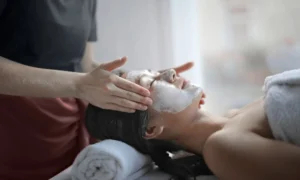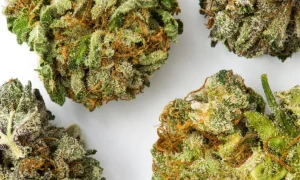Your puppy deserves nothing but the best: your unconditional love, the most suitable food, and all the proper care to develop correctly, stay healthy, happy, and ready for adventures. The right dental care is essential from the very beginning of every pup’s life. You want your dog to avoid any pain, tooth pain included and too frequent trips to the veterinarian. Your puppy should be able to enjoy treats and foods you will provide for the rest of their life. Here, you will find some tips on how to take care of your dog’s precious teeth to be sure you’re doing everything in your power.
Invest in chew toys
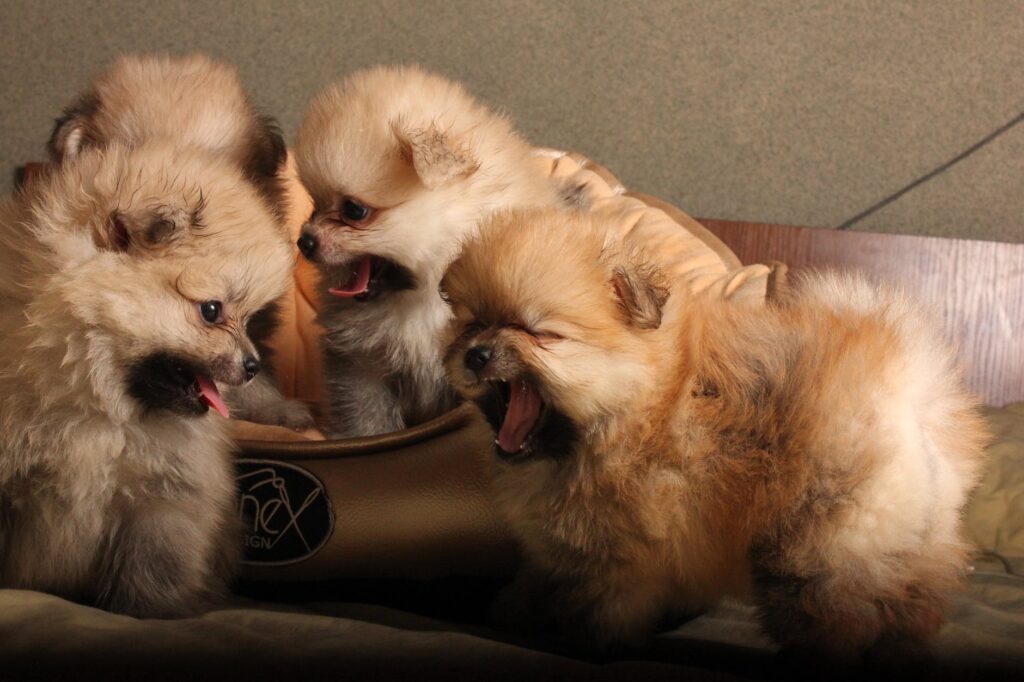
Image source: pexels.com
Teething is just as important an event in dogs, as it is in human babies. Luckily, there are many specially designed chew toys for puppies that can help you control the growth and keep the teeth clean. It’s best to look for toys that are proven to control plaque rather than those with a tartar claim. Remember that dogs should avoid natural bones, hard nylon toys or large rawhide toys, as there is a risk that they will fracture their teeth. Visit My Sweet Puppy to learn more about your puppy’s needs and how to meet them.
Start brushing as soon as possible
It may be highly challenging at the beginning, but your puppy will get used to it eventually. It’s best to start as soon as possible, but if you haven’t been with your dog since birth, it’s never too late to start brushing their teeth. It will help to remove plaque and slow the development of tartar.
Begin with their gums by gently rubbing them with your finger regularly, and allow your puppy to get used to it. Then, you can find a small, soft brush that will fit on your fingertip, and buy a special toothpaste for puppies. When your dog already has their adult teeth, establish a brushing routine — around 3 or 4 times a week. If you’re struggling with the activity itself, ask your veterinarian for a demonstration.
It’s best to choose the time when your dog is after their exercise and is more likely to sit still. Don’t force anything; if your pup gets agitated, quit even if you’re not done yet. Speak soothingly while you do this, as your dog trusts your voice and recognizes different tones, and reward them after the whole procedure.
Pick the right toothpaste
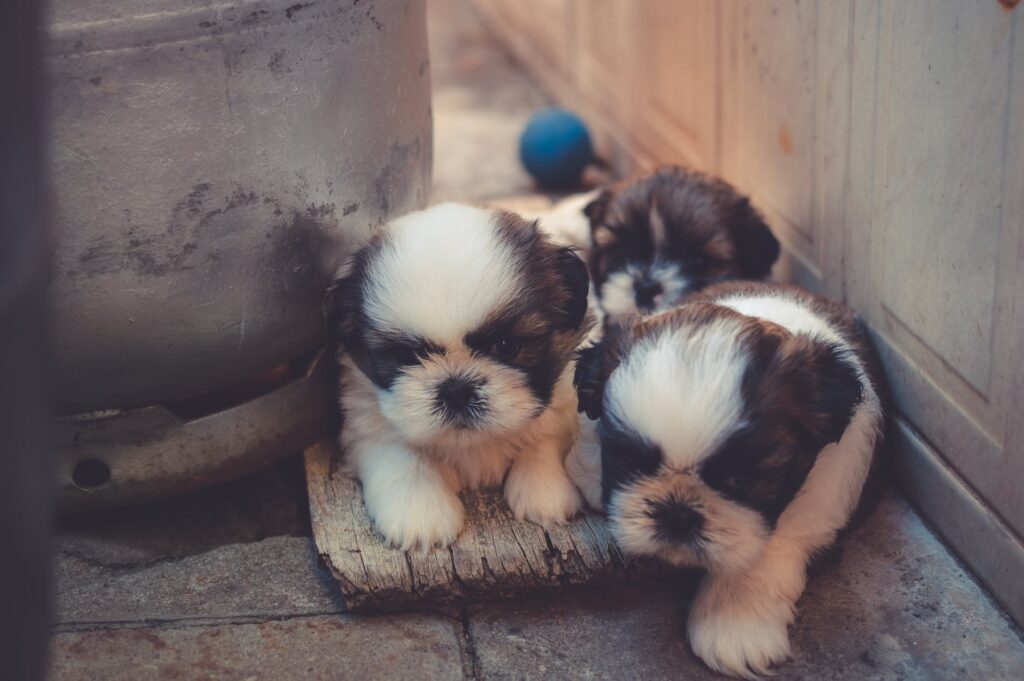
Image source: pexels.com
It may sound obvious, but not everybody knows that fluoride, which is present in most kinds of toothpaste for humans, is poisonous to dogs. So don’t brush your Fido’s teeth with your own paste. Instead, buy the one specially formulated for canine health.
Include some dry food into your pup’s diet
Both dry and wet dog foods have their advantages and disadvantages, but when it comes to dental health, dry kibble is much more beneficial. It’s especially important if you have a dog who can’t stand brushing. Dry food can help to keep your puppy’s teeth clean while the wet one can stick to the teeth and cause decay. So if your dog is a bigger fan of the latter, you can at least diversify their diet by serving both.
Stick to the proper diet

Image source: pexels.com
Consult with a veterinarian to formulate the most suitable diet for your dog’s individual needs.
Don’t share your sugary foods with your Fido, no matter how they beg and how your heart melts. Sugar is not good for you, but it can really be dangerous for dogs in the long term, and not only to their dental health. In general, you shouldn’t give your pup the leftovers and table scraps. The canine diet should be formulated with the help of a veterinary expert or nutritionist, and not based on human food.
There are also treats formulated to support dental health, so if you use them as a reward, it may be a good idea to find the beneficial ones. Don’t worry, they can still be delicious.
In the most severe cases, your veterinarian may recommend switching to a special, dental care diet. Remember not to make this decision on your own.
Know your dog’s mouth
Of course, there are some universal rules you can follow to keep your dog healthy, but dogs, just like people, may vary among each other significantly. That’s why it’s vital to know your pup’s individual characteristics and needs to be able to tell whenever something is wrong.
In general, healthy teeth are clean and free of tartar and plaque (discolorations). Typically, dogs have 42 teeth, and all should be intact, whole. The puppy tongue should be moist. Remember that any lump or cut is unusual and should be taken seriously. Then, be sure you know what color is your pup’s tongue and gums naturally. If you see any problems, then you should confine your puppy to a puppy pen until the problem is resolved and the gums have healed. Learn more about this topic on this website.
You should also know what the signs of dental health problems are. Not many people know that, for example, bad breath may indicate that something is going on in your dog’s mouth. Apart from that and the tartar, look out for inflamed or bleeding gums, excessive drooling, any problems with chewing, or your dog rubbing their face against the floor or furniture.
Go for regular check-ups
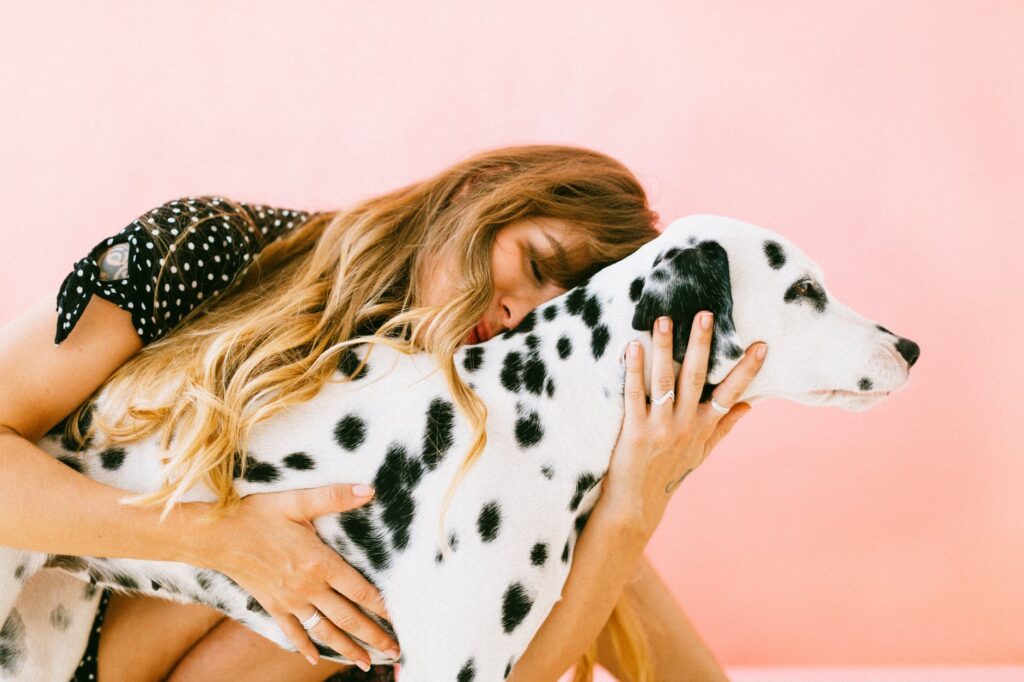
Image source: pexels.com
Regular appointments at your veterinarian are essential not only for your pup’s dental health but in general. Most vets check canine teeth during a routine visit, but if yours doesn’t do it, you have to ask.
Even if your dog is as fit as a fiddle, you need to make sure that a veterinary expert sees them regularly. Only then you will be sure that in case of any issue, problem, disease, you will know about it in time to help your Fido.
Remember to consult with your vet every time you consider changing your dog’s diet or lifestyle, or you see a change in their behavior, as well as whenever you have doubts about taking care of your pup. It’s recommended that a healthy dog sees their veterinarian once in six to twelve months. A veterinarian will remove tartar build-up, and make sure that everything else is as it should be.


